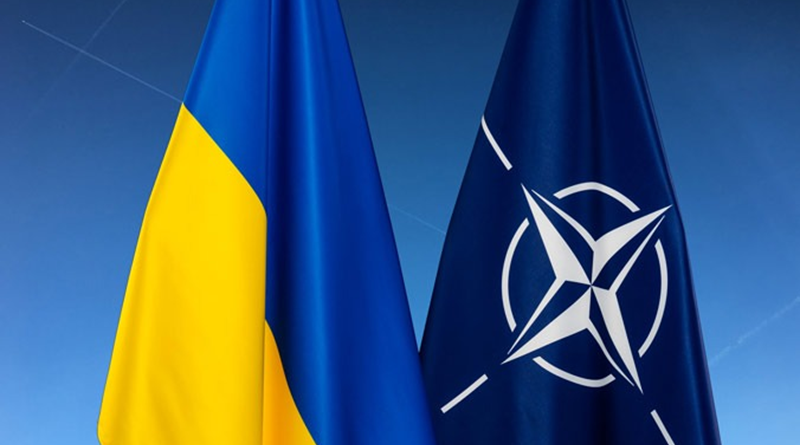Europe’s Best Defense Against Putin’s Russia – Ukraine’s Million-Strong, Battle-Hardened Army
As I have argued repeatedly, Europe’s weakness does not stem primarily from a lack of military strength—either current or projected—but from its failure to define a critical path and take decisive action. Without clear strategic direction, even the most well-funded defense efforts risk inefficiency, delays, and internal discord.
When viewed alongside Ukraine, Europe is far from a “military dwarf”—a fact well understood in Russia. This is precisely why the Kremlin reacts with alarm to any suggestion that the EU might formally engage in military negotiations. For Putin, the worst-case scenario is not just Ukraine joining NATO—it is Ukraine’s army being backed by the EU’s financial resources and military assets. A fully integrated Ukrainian force within a European security framework would fundamentally alter the balance of power in the region, presenting a direct and insurmountable obstacle to Russian expansionism.
Ukraine: The Force Multiplier Europe Cannot Afford to Lose
Financially, Europe can afford to rearm—there is no shortage of resources. The real challenge lies in translating financial investments into operational military power within a meaningful timeframe. And this is where Ukraine plays a pivotal role.
Ukraine already possesses what Europe lacks—an experienced, battle-hardened army with real combat expertise in high-intensity warfare against Russia. While European forces have spent decades focused on counterinsurgency operations, peacekeeping, and hybrid threats, Ukraine has been fighting a full-scale, conventional war against one of the world’s largest military powers. This experience is invaluable.
By integrating Ukraine’s military capabilities, doctrine, and combat-tested personnel into the broader European security architecture, the EU and NATO could significantly accelerate their rearmament efforts. Rather than building up military forces from scratch or relying on outdated models of defense, Europe could leverage Ukraine’s hard-won expertise to modernize its approach to warfare. This is particularly critical given the evolving nature of the Russian threat, which blends conventional force projection with cyber warfare, energy blackmail, and disinformation campaigns.
Without Ukraine, Europe risks military paralysis—lacking both a capable force on the ground and its most crucial regional ally, all while facing an increasingly aggressive adversary.
The Real Question: Can NATO Survive Without Ukraine?
Given these realities, the debate is no longer about whether Ukraine should formally join NATO or whether Russia should have a veto over such a decision. The real question is whether NATO, as we know it, can survive without forging a strategic alliance with Ukraine.
Support Independent Analysis
Help us keep delivering free, unbiased, and in-depth insights by supporting our work. Your donation ensures we stay independent, transparent, and accessible to all. Join us in preserving thoughtful analysis—donate today!
Ukraine’s military strength is not just a buffer for Europe—it is an integral part of Europe’s long-term security equation. Ignoring this reality would leave NATO and the EU dangerously exposed, forcing them to either accept a weakened security posture or scramble to rearm at an unprecedented pace, all while Russia actively seeks to exploit every delay and division.
Putin’s Problem: No Leverage, No Capitulation
Putin’s primary challenge is that he demands Ukraine’s capitulation without having achieved any decisive military leverage on the battlefield. His forces remain stalled, unable to deliver the kind of territorial gains that would force Kyiv to negotiate from a position of weakness. Without a military breakthrough, Putin is left relying on diplomatic maneuvers, propaganda, and external pressure—none of which are sufficient to achieve his ultimate goal of subjugating Ukraine.
But this is no longer just about Ukraine. The entire security architecture of Eastern Europe hangs in the balance. If Ukraine falls or is forced into a disadvantageous peace, the rest of the region—including Poland, the Baltic states, and even parts of Central and Eastern Europe—will be next in line for Russian intimidation and coercion.
Europe’s Survival Depends on Ukraine
If European leaders truly grasp the gravity of the situation, they must recognize that Ukraine is not just fighting for its own survival—it is fighting for Europe’s future. A million-strong, battle-hardened Ukrainian army, equipped and supported by the EU and NATO, is the most effective deterrent against further Russian aggression.
The choice is clear: integrate Ukraine into the European security framework now or risk facing a far greater crisis later, when the cost of inaction will be immeasurably higher.
Ilian Vassilev




